Face to face one last time: Debate night for Hillary Clinton, Donald Trump
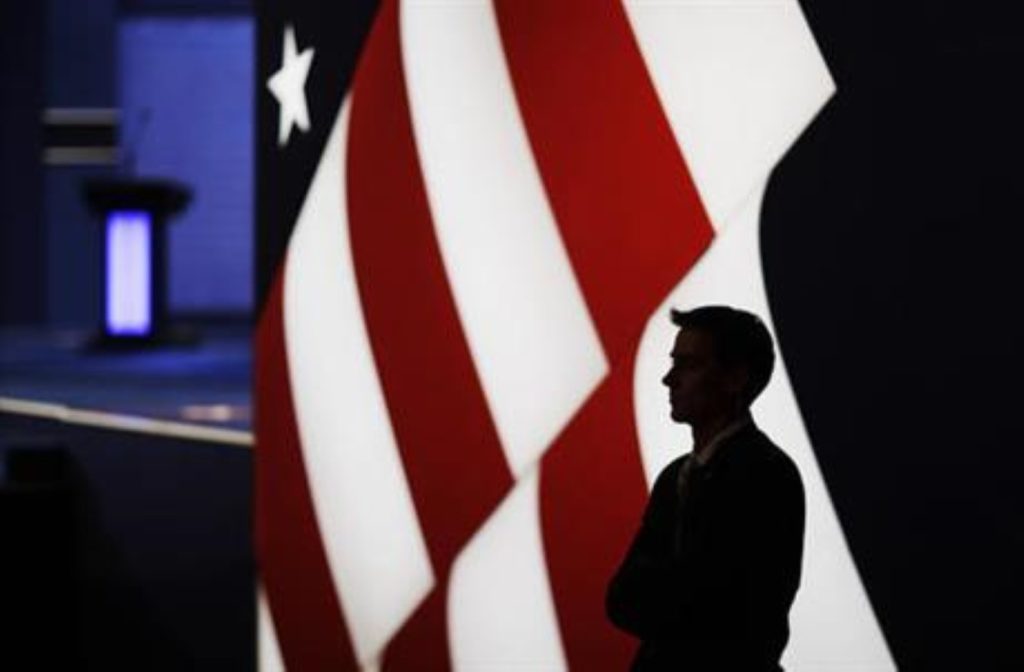
Hillary Clinton and Donald Trump‘s long and acrimonious battle for the White House is speeding toward the end, with the candidates taking the debate stage Wednesday night for one final prime-time showdown. For Trump, the debate is perhaps his last opportunity to turn around a race that appears to be slipping away. His predatory comments about women and a flood of sexual assault accusations have deepened his unpopularity with women and limited his pathways to victory. Trump has denied the accusations and his supporters remain intensely loyal, but there are few signs he’s attracting the new backers he desperately needs. Clinton takes the stage with challenges of her own. While the electoral map currently leans in her favor, the Democrat is facing a new round of questions about her trustworthiness, concerns that have trailed her throughout the campaign. The hacking of her top campaign adviser’s emails revealed a candidate who is averse to apologizing, can strike a different tone in private than in public, and makes some decisions only after political deliberations. The last in a trio of presidential debates, Wednesday’s contest in Las Vegas comes just under three weeks from Election Day and with early voting underway in more than 30 states. At least 2.1 million voters have cast ballots already. Trump has leaned on an increasingly brazen strategy in the campaign’s closing weeks, including peddling charges that the election will be rigged, despite no evidence of widespread voter fraud in U.S. presidential contests. H(s running mate, Mike Pence, has insisted they’ll accept the election results. On Wednesday, Trump campaign manager Kellyanne Conway, seemed to undercut Trump’s argument by saying she didn’t believe there was widespread voter fraud. “Absent overwhelming evidence that there is, it would not be for me to say that there is,” Conway told MSNBC. Trump has also charged that Clinton attacked and intimidated women involved with her husband’s affairs, bringing three women who accused former President Bill Clinton of unwanted sexual contact and even rape to sit in the audience for the second debate. The former president has never been charged with crimes related to the encounters, though he did settle a sexual harassment lawsuit. Trump is bringing President Barack Obama‘s half-brother, Trump supporter Malik Obama, as his debate guest Wednesday night. Clinton is bringing billionaire and frequent Trump critic Mark Cuban and Hewlett Packard Enterprise CEO Meg Whitman, one of the former secretary of state’s highest-profile Republican backers. Republicans want Trump to close the campaign by focusing on Clinton’s weaknesses, a strategy some privately concede may not be enough at this point for him to win but could help GOP Senate candidates salvage their races. The businessman has shown flashes of renewed focus in recent days, including highlighting recently released FBI documents detailing a senior State Department official’s request that the FBI help reduce the classification of an email from Clinton’s private server. One of the FBI documents, the notes from an investigator’s interview with an unnamed bureau official, suggested the FBI and the State Department official had discussed a quid pro quo to let the FBI to deploy more agents in foreign countries. But the FBI and State Department said this week that the two issues, while discussed, had never been linked. Campaigning Tuesday in Colorado, Trump called the matter “felony corruption” and worse than the Watergate scandal that brought down President Richard Nixon. The Republican National Committee said Wednesday it had written the State Department’s inspector general requesting a “full investigation,” though the inspector general already looked into the broader issue of Clinton’s emails classification last year. Clinton, who has meticulously prepared for the three debates at the expense of time in battleground states, visibly rattled Trump in their first showdown by using his own controversial comments about women and minorities against him. The businessman was on the defense at the start of the second debate — which came days after the release of a video in which he brags about kissing and grabbing women — but ended on stronger footing, hammering Clinton for being a creature of Washington who won’t be able to bring about change. The Republican has acquiesced to some advisers who pressed for him to do more serious debate preparations. Still, he’s continued to eschew the mock debates and multi-day prep sessions for which he’s mocked Clinton. “She’s been doing this for 30 years and now she has to do debate prep for five days,” Trump said. “You know what the debate prep is? It’s resting. It’s lying down and going to sleep.” Republished with permission of the Associated Press.
Outside debate arena, a buzz of activity by media, others
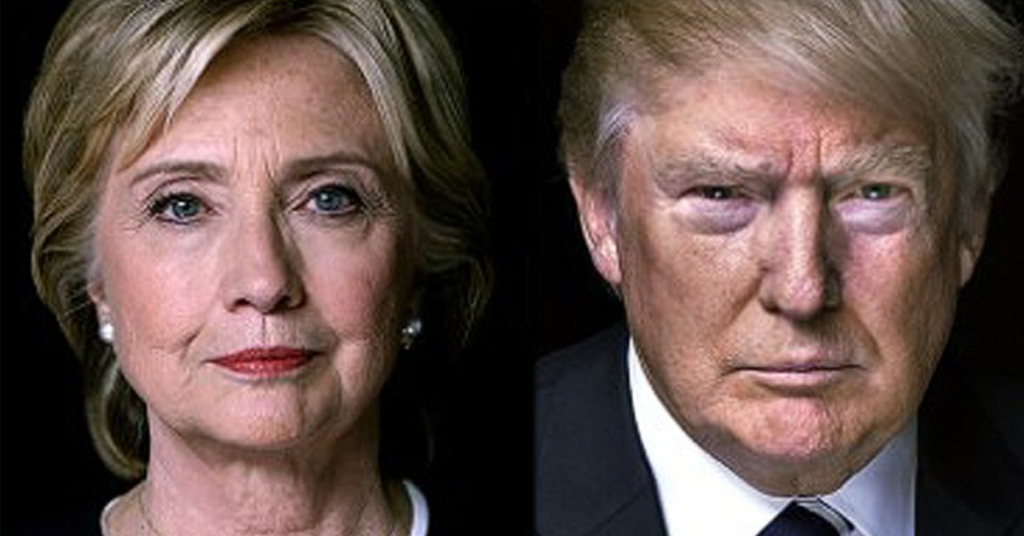
Hours before Democrat Hillary Clinton and Republican Donald Trump meet for their third and final presidential debate, it was anything but quiet outside the Thomas & Mack Arena on the UNLV campus in Las Vegas. Media members, marching bands and supporters of all stripes assembled under sunny skies on the campus not far from the busy Las Vegas Strip. Media outlets are broadcasting live, speculating on the candidates’ debate strategy and decorum. The Rebels marching band tuned up while noisy supporters and detractors chanted loudly under the watchful eyes of a promised large contingent of law officers, including Las Vegas and UNLV police, Secret Service agents and Nevada Highway Patrol troopers. Airspace over the arena has been cleared, and road closures are expected to snarl traffic. Republished with permission of the Associated Press.
Judge denies new trial for former House Speaker Mike Hubbard
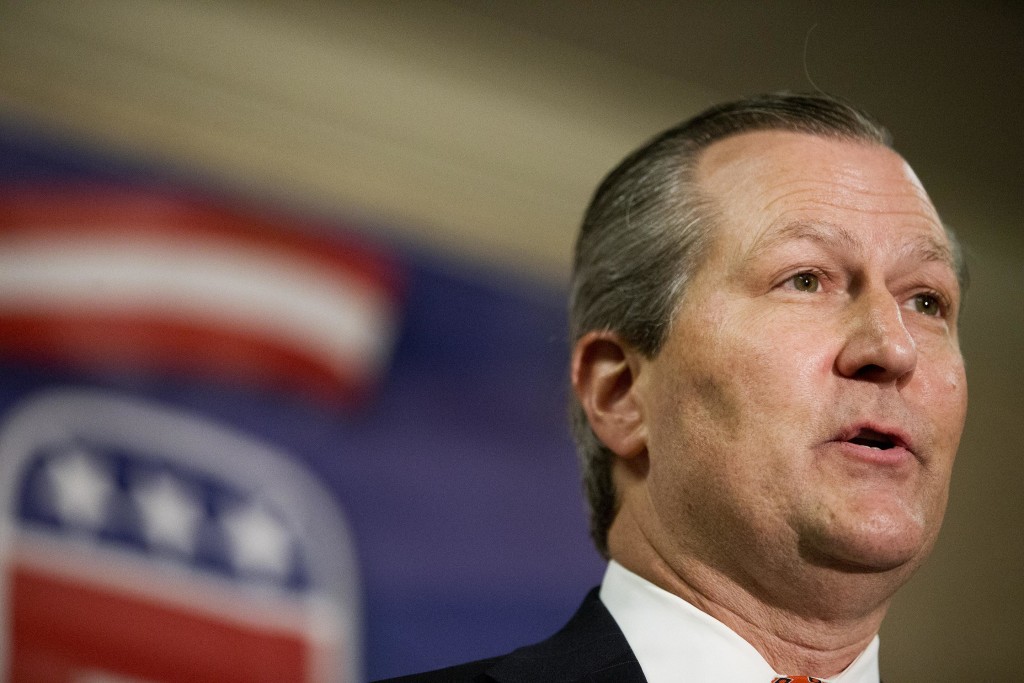
Things aren’t looking any better for ousted House Speaker Mike Hubbard these days. A judge denied him a new trial on the grounds of jury misconduct. Lee County Circuit Judge Jacob Walker on Tuesday said Hubbard failed to prove jurors were prejudiced against him when they convicted him on ethics charges back in June. In his decision, he noted Hubbard was not convicted on all counts brought before the court, suggesting the jurors were, in fact, not prejudiced and they systematically made their decisions count-by-count. “Because the defendant failed to make a showing that he was actually prejudiced, this court would not disturb the verdict of the trial jury,” Walker wrote in his decision. On June 10, Hubbard was convicted on 12 of 23 counts of corruption, which automatically removed the powerful Republican from both the Legislature and the speaker’s office, ending the upward trajectory of the one-time GOP star whose career previously appeared to have no limits. He was later sentenced to a total of four years in prison and eight years on probation, and ordered to pay a $210,000 fine. Hubbard is free on bond while he appeals to the Alabama Court of Criminal Appeals. He continues to maintain his innocence.
Joe Henderson: Predicting Donald Trump in final debate is risky business

Game-changer? Or victory lap? That’s two potential outcomes for tonight’s third and final presidential debate. The first one applies to Donald Trump fails. If he fails to change the election narrative in his last head-to-head face off with Hillary Clinton, his White House aspirations likely are finished (if they aren’t already). Clinton, ahead in the polls, likely just needs to avoid committing a major gaffe in the face of what is expected to be a flurry of attacks and allegations from an opponent with nothing to lose. Trying to guess what Trump might do is risky business. In the first debate, he interrupted Clinton repeatedly and accused her, among other things, of “fighting ISIS your whole adult life.” Fact-check alert: That terrorist organization didn’t exist until Abu Bakr al-Baghdadi gave it a name in 2013. If you want to stretch and say its brand of terrorism has been around since the 1990s, even that doesn’t fit Trump’s charge. Trump did better in the second debate but a big story that emerged was that he essentially stalked Clinton around the stage while she was speaking. It may have been an attempt at intimidation. It didn’t work. So what’s it going to be tonight? Here are a few possibilities. DRAIN THE SWAMP Team Trump has been telegraphing this one. Trump could focus on his five-point proposal aimed at curbing lobbying by lawmakers and members of the executive branch after they leave government service. It’s a populist approach that Trump has called “Drain The Swamp” and it definitely has appeal. It also helps focus attention on Clinton’s reputation as the ultimate Washington insider as well as the controversies surrounding the Clinton Foundation. YOU MISOGYNIST PIG Trump has tried to say the multiple women who accused him of unwanted sexual advances are lying. His case is not helped by the now-infamous audio of him and former NBC host Billy Bush engaging in “locker room talk” (Trump’s words) about how big shots like The Donald can do anything they want with any woman they want. Trump’s base has wholeheartedly bought his “they’re all liars” gambit. Tonight, we’ll see if the rest of America does. PAGING OLIVER STONE, PLEASE REPORT TO TRUMP TOWER Trump’s latest line of attack is that the “crooked media” has conspired with Clinton to rig the election in her favor. Well, the media certainly have been reporting the things Trump says and does, along with what people say about him. But a conspiracy? You can bet he will advance that theory in the debate. It could be a pre-emptive move by Trump to have a fallback if election night goes as many predict. He will just say he was robbed, and will set his followers’ hair on fire with allegations that precincts here or there had suspicious activity. Arguing the election is “rigged” has been denounced by most high-level Republicans, including Mike Pence — Trump’s running mate. Clinton can make Trump look extra foolish on that point in front of millions of TV viewers. STAY ABOVE IT Clinton’s strategy likely will involve staying above the fray, refusing to engage on Trump’s expected batch of dark theories and oft-repeated accusations about her alleged misconduct. Her best gambit should be to show voters she isn’t the monster Trump is trying to depict. Clinton can be a wooden campaigner. She doesn’t have her husband’s natural gift for connecting with an audience. She has further been battered by three decades of attacks by Republicans. They have, at times, depicted her to be complicit in a murder (former aide Vince Foster’s suicide). The beneficiary of a shady land deal (Whitewater). A traitorous secretary of state (we didn’t forget Benghazi or her use of a private email server for sensitive government business). Trump even suggested recently she wasn’t faithful to her husband. Despite all that, she has a solid lead in the polls. Early voting is underway and CBS News reported that 94 percent of Clinton voters say they have made up their minds (compared to 93 percent for Trump). If she can stay away from political quicksand tonight, she might be home free. ___ Joe Henderson has had a 45-year career in newspapers, including the last nearly 42 years at The Tampa Tribune. He covered a large variety of things, primarily in sports but also including hard news. The two intertwined in the decade-long search to bring Major League Baseball to the area. Henderson was also City Hall reporter for two years and covered all sides of the sales tax issue that ultimately led to the construction of Raymond James Stadium. He served as a full-time sports columnist for about 10 years before moving to the metro news columnist for the last 4 ½ years. Henderson has numerous local, state and national writing awards. He has been married to his wife, Elaine, for nearly 35 years and has two grown sons – Ben and Patrick.
Alabama is 2016’s third-least energy-efficient state

It’s no secret energy is expensive. It’s one of the biggest household expenses for American consumers, who, on average, spend nearly $2,000 per year on energy bills. About half of that amount pays just for heating and cooling. Unfortunately for Alabamians, the state is the third-least energy-efficient in the nation, according to a new study by WalletHub. In the new, in-depth analysis of 2016’s Most & Least Energy-Efficient States, the personal-finance website endeavored to bring awareness to the impact of energy on American wallets and encourage citizen to conserve more, as October is National Energy Awareness Month. Energy efficiency in Alabama (1=Best; 24=Avg.) 46th: home energy efficiency 3rd: vehicle-fuel efficiency 46th: transportation efficiency Here’s how Alabama compares to the rest of the country: Source: WalletHub Source: WalletHub In order to determine the most energy-efficient states, WalletHub’s analysts compared 48 states across two key dimensions, including “Home Energy Efficiency” and “Car Energy Efficiency.” Due to data limitations, Alaska and Hawaii were excluded from the analysis. WalletHub analysts obtained the “Home Energy Efficiency” score by calculating the ratio of total residential energy consumption to annual degree days. For the the “Car Energy Efficiency” score, they divided the annual vehicle miles driven by gallons of gasoline consumed to determine vehicle-fuel efficiency and measured annual vehicle miles driven per capita to determine transportation efficiency. Each dimension was weighted proportionally to reflect national consumption patterns and graded on a 100-point scale, with 100 representing optimal energy efficiency. They then calculated overall scores for each state and used the result to construct the final rankings.
Alabama to participate in National Prescription Drug Take-Back Day

It’s time to clean out the medicine cabinet — the National Prescription Drug Take-Back Day is this Saturday from 10 a.m. to 2 p.m. Considering Alabama has more opioid prescriptions than it has residents — the highest prescription-per-capita rate in the nation at 1.2 pain-killer prescriptions written per Alabamian in 2015 — this is a date all residents should mark on their calendars. Sponsored by the Drug Enforcement Agency’s (DEA), Alabama has approximately 52 collection sites across the state where Alabamians can safely dispose of unwanted, unused prescription medications. “This is an important and basic step to fight drug abuse and drug-related crimes, by assisting in the removal of potentially dangerous controlled substances from our homes,” said Alabama Attorney General Luther Strange. “Many of us have outdated prescriptions that are too easily accessible to children and others. These drugs can also be the target of home invasions and burglaries. On Oct. 22, we are asking the people of Alabama to protect their homes and communities by locating medicines that are out-of-date or no longer needed, and bringing them in for safe and proper disposal.” Deaths from prescription drug overdoses have reached epidemic levels, claiming the lives of 78 people every day. The state of Alabama had a nearly 20 percent increase in overdose deaths from 2013-2014, which is why Strange’s office has worked closely with the DEA, U.S. attorneys in Alabama, the Alabama Department of Public Health, local law enforcement, and others to promote the Prescription Drug Take-Back program. Since the first take-back event in Alabama, in September 2010, the program continues to increase in the amount of drugs collected. DEA Prescription Drug Take-Back events last spring collected an estimated 5,351 pounds in Alabama of unwanted, expired, or unused drugs for proper disposal. Throughout all of Alabama’s previous events, a total of about 43,000 pounds of drugs have been removed and disposed of safely. Law enforcement agencies and interested community partners such as pharmacies, schools, and civic groups are working together to provide as many local sites as possible throughout Alabama. Each site will be supervised by a law enforcement officer due to the involvement of controlled substances. Deliveries of drugs to DEA Prescription Drug Take-Back Day events are confidential, with no personal information collected and no questions asked. Participants are encouraged to remove labels or black out information beforehand. People who wish to participate should inquire with their local law enforcement agencies, or may check the DEA website for a nearby location. A listing of sites can be found at dea.gov by clicking the “Got Drugs” box. If you do not see your area listed on the DEA website, please check with your local law enforcement officials to see if they may be participating in a take-back event.
Hillary Clinton, Donald Trump set for last debate as ugly race nears finish
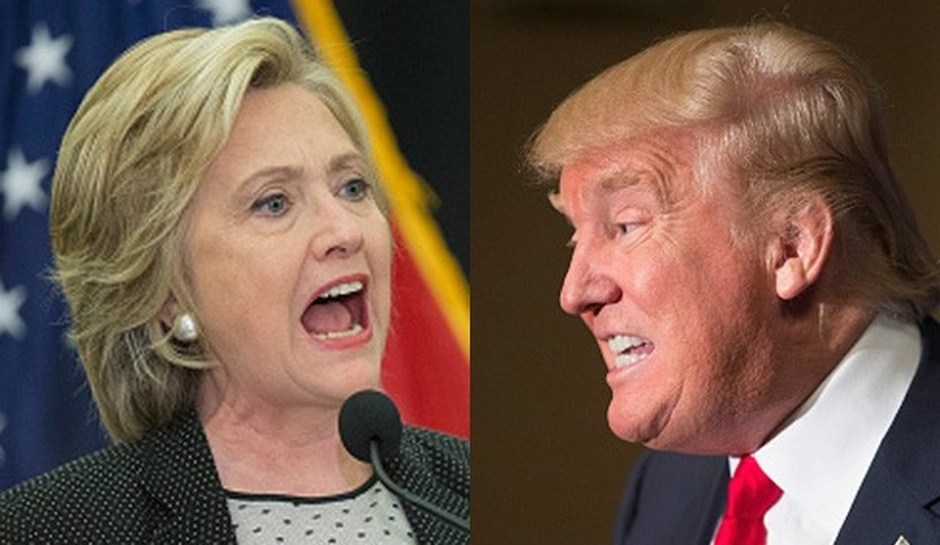
Hillary Clinton and Donald Trump‘s ugly and acrimonious battle for the White House is barreling toward the end, with the candidates taking the debate stage Wednesday night for one final primetime showdown. For Trump, the debate is perhaps his last opportunity to turn around a race that appears to be slipping away from him. His predatory comments about women and a flood of sexual assault accusations have deepened his unpopularity with women and limited his pathways to victory. His supporters remain intensely loyal, but there are few signs he’s attracting the new backers he desperately needs. Clinton takes the stage facing challenges of her own. While the electoral map currently leans in her favor, the Democrat is facing a new round of questions about her authenticity and trustworthiness, concerns that have trailed her throughout the campaign. The hacking of her top campaign adviser’s emails revealed a candidate that is averse to apologizing, can strike a different tone in private than in public, and makes some decisions only after painstaking political deliberations. The last in a trio of presidential debates, Wednesday’s contest in Las Vegas comes just under three weeks from Election Day and with early voting already underway in more than 30 states. At least 2.1 million voters have cast ballots already. Trump has leaned on an increasingly brazen strategy in the campaign’s closing weeks, including peddling charges that the election will be rigged, despite no evidence of widespread voter fraud in U.S. presidential contests. He’s also charged that Clinton attacked and intimidated women involved with her husband’s affairs, bringing three women who accused former President Bill Clinton of unwanted sexual contact and even rape to sit in the audience for the second debate. The former president has never been charged with crimes related to the encounters, though he did settle a sexual harassment lawsuit. Trump is bringing President Barack Obama‘s half-brother, Trump supporter Malik Obama, as his debate guest. Clinton is bringing billionaire and frequent Trump critic Mark Cuban and Hewlett Packard Enterprise CEO Meg Whitman, one of the former secretary of state’s highest-profile Republican backers. Clinton spokesman Brian Fallon said the Democratic nominee “will be ready for whatever scorched-earth tactics (Trump) tries” in Wednesday’s debate. And, on MSNBC, Trump campaign manager Kellyann Conway summed up her advice to her candidate in a word: “Focus.” Republicans desperately hope Trump can close the campaign by focusing on Clinton’s weaknesses, a strategy some privately concede may not be enough at this point for him to win, but could help GOP Senate candidates salvage their races. The businessman has shown flashes of renewed focus in recent days, including highlighting a senior State Department official’s request that the FBI help reduce the classification of an email from Clinton’s private server. It was to be part of a bargain that would have allowed the FBI to deploy more agents in foreign countries, though it was not immediately clear whether the State Department official or someone at the FBI first raised that prospect. Campaigning Tuesday in Colorado, Trump called the matter “felony corruption” and worse than the Watergate scandal that brought down President Richard Nixon. The Republican National Committee said Wednesday it had written the State Department’s inspector general requesting a “full investigation.” Clinton, who has meticulously prepared for the three debates at the expense of time in battleground states, visibly rattled Trump in their first showdown by using his own controversial comments about women and minorities against him. The businessman was on the defense at the start of the second debate – which came days after the release of a video in which he brags about kissing and grabbing women – but ended on stronger footing, hammering Clinton for being a creature of Washington who won’t be able to bring about change. Trump denied in the second debate that he had made the kind of unwanted sexual advances he is heard describing on the video. His denial prompted some of the women who have since publicly accused him of assault to come forward. The Republican has acquiesced to some advisers who pressed for him to do more serious preparations after the first debate. Still, he’s continued to eschew the mock debates and multiday prep sessions that he’s criticizing Clinton for. “She’s been doing this for 30 years and now she has to do debate prep for five days,” Trump said. “You know what the debate prep is? It’s resting. It’s lying down and going to sleep. Moderator Chris Wallace – the first Fox News journalist to moderate a debate – has said he plans to ask the candidates about debt and entitlements, immigration, the economy, the Supreme Court, foreign hot spots and their fitness to be president. He aims to spend 15 minutes on each topic. Republished with permission of the Associated Press.
Barack Obama: ‘We saved the best for last’ at final state dinner
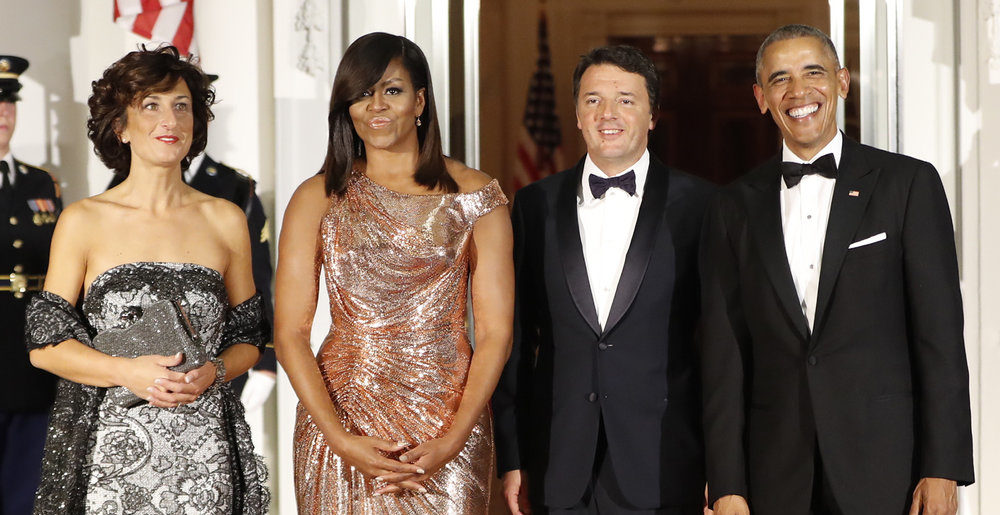
“Bittersweet” was the word of the night, the one often used to describe President Barack Obama‘s final State Dinner. “We saved the best for last,” he said Tuesday as he welcomed Italian Prime Minister Matteo Renzi and his wife, Agnese Landini, to the White House. He wasn’t joking. The final gala meant everything was big or bigger, from the personality of the guest chef (Mario Batali) who collaborated on the menu to the size of the white tent (huge) on the South Lawn where the soiree was held, to the guest list (nearly 400 people). Rep. Gerald Connolly, D-Va., said it’s “a little sad” that it’s Obama’s last State Dinner. But to make the occasion even more memorable, he said: “For tonight only, I pronounce my name ‘Canoli,’ not ‘Connolly.” Michelle Obama‘s hairstylist, Johnny Wright, also described the moment as “bittersweet,” but he was still excited to have been invited. The first lady also invited her makeup artist, Carl Ray; her trainer, Cornell McClellan; and Meredith Koop, who helps Mrs. Obama with her wardrobe. “I’m excited that it’s the last State Dinner, so it’s a bittersweet thing,” said actress-comedian Alexandra Wentworth. “I love the Obamas.” Others, meanwhile, sought to inject some levity into the evening. “We’re Jews, but we identify as Italian,” joked Jerry Seinfeld. By way of explaining why the Obamas may have invited the comedian and his wife, Jessica, Seinfeld said the couple spends a lot of time traveling in Italy “and we almost exclusively go out for Italian food, but that’s as far as I can figure.” After tripping while climbing stairs and then cutting out the lining of her dress, celebrity chef Rachael Ray joked that “I should only come here in sneakers.” Ray has done numerous events with Mrs. Obama to support the first lady’s “Let’s Move” anti-childhood obesity initiative. Obama has had one dinner bigger than Tuesday’s – a 2014 event for African heads of state to which more than 400 people were invited. Tuesday’s guest list included a touch of everything: celebrities, lawmakers, senior administration officials, White House staff, a larger-than-usual contingent of journalists and others, and it had the feeling of having been designed as one big final “thank you” to all. In fact, Mrs. Obama was overheard thanking her guests “for eight magnificent years.” “This has truly been a successful final State Dinner,” she said between dinner and the entertainment. Guests of Italian descent included House Minority Leader Nancy Pelosi, D-Calif., the highest-ranking Italian-American in U.S. politics; former race car driver Mario Andretti, who sported socks designed like a checkered racing flag; fashion designer Giorgio Armani; actor John Turturro; New York Gov. Andrew Cuomo; and actor-director Roberto Benigni. Once again, the first lady dazzled – literally – in her evening gown, a rose gold chainmail number by Italian designer Versace, the White House said. Other female guests also went Italian in their choice of attire, clothing themselves in Valentino, Roberto Cavalli and others. Batali helped the White House kitchen crew prepare the meal, and Grammy-winning pop singer Gwen Stefani opened the after-dinner segment with her hit, “The Sweet Escape,” as her boyfriend, country superstar Blake Shelton, looked on from the audience. After that song, she talked about her dad being Italian American and said “I’m trying to, like, figure this out, how I got here,” referring to the dinner. A few guests, including fellow cook Sandra Lee, Cuomo’s partner, said they were mostly looking forward to eating Batali’s food. In his pre-dinner toast, Obama said American democracy had been graced by a touch of Italy. He noted that the Lincoln Memorial and the interior of the U.S. Capitol dome were done by Italians, and raised a glass to the “enduring alliance” between the U.S. and Italy. Renzi alluded during his toast to a speech the first lady gave last week in New Hampshire in which she criticized Republican presidential nominee Donald Trump for boasting on a 2005 video about being sexually aggressive toward women. “Michelle, your tomatoes are great. But after the last weeks, let me be very frank, your speeches are better than your tomatoes,” Renzi said, thanking her as the father of a young daughter. Batali, executive chef Cristeta Comerford and pastry chef Susie Morrison settled on a menu of sweet potato ravioli with browned butter and sage, warm butternut squash salad and an entree of beef pinwheels, an Italian classic, served with broccoli rabe. Dessert was a green apple crostata, or Italian tart, served with buttermilk gelato, or Italian ice cream. The menu was designed to showcase traditional Italian dishes that are familiar to Americans and were made using ingredients pulled from Mrs. Obama’s garden during this month’s final harvest, such as the sweet potatoes and herbs. Obama has held 13 state dinners during nearly eight years in office, two more than President George W. Bush, but fewer than other recent predecessors, according to the White House Historical Association. President Bill Clinton far exceeded both of his successors with 28 dinners during two terms in office. — View the complete State Dinner guest list here. Republished with permission of the Associated Press.
U.S. Justice Department to dispatch fewer election observers
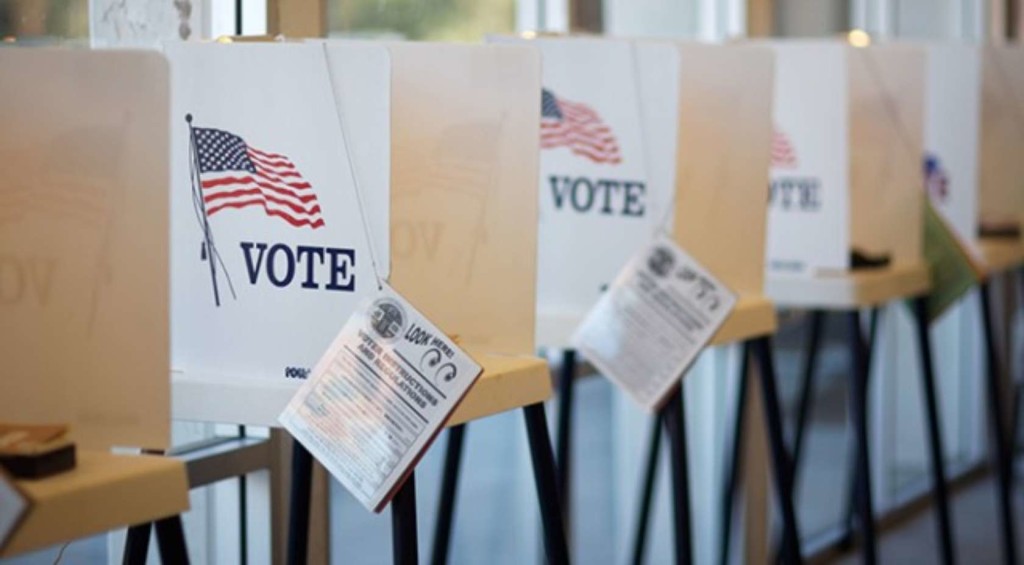
Justice Department officials are warning that they will be dispatching fewer specially trained election observers this year as a result of a Supreme Court opinion that gutted a key provision of the Voting Rights Act. The reduction is likely to diminish the department’s ability to detect voter intimidation and other potential problems at the polls. It comes as more than a dozen states have adopted new voting and registration rules, and as Republican candidate Donald Trump warns without evidence that the Nov. 8 election will be rigged and exhorts his followers to be vigilant against unspecified fraud. “It’s cause for concern,” said Dale Ho, director of the ACLU’s Voting Rights Project. “It’s hard to know ahead of time how significant a problem it’s going to be.” Justice Department officials said they still will dispatch hundreds of staffers to the polls and expect to have them in at least as many states as during the 2012 election, when they sent more than 780 to 23 states. “We have been doing everything we can through our monitoring program to be able to be as effective as we can be” in ensuring fair elections, said Vanita Gupta, head of the Justice Department’s Civil Rights Division. But, she said, there’s no way to “sugar coat” the impact of the court’s 2013 Shelby County v. Holder opinion, which invalidated a cornerstone of the 1965 voting law. In a video being released Wednesday, Attorney General Loretta Lynch said that though the court’s decision had reined in the Justice Department’s power, the government would work to “ensure that every voter can cast his or her ballot free of unlawful intimidation, discrimination, or obstruction.” The exact number of personnel will not be revealed until closer to Election Day. Most of the staffers will be so-called election monitors, who have less authority than federally trained election observers and rely on the cooperation of local officials to do their jobs. Unlike monitors, federal observers enjoy unfettered access inside polling places on Election Day and cannot be removed. The federal observer program has provided an important safeguard during previous elections, especially in places that tried to suppress the votes of blacks, Latinos and other minorities, said Kristen Clarke, president of the Lawyers’ Committee for Civil Rights Under Law. In past elections, for example, observers were sent to Greensboro, Alabama, after white election officials tried to deny access to black voters and to Pike County, Georgia, when an after-hours voter registration session was open to whites only. Observers and monitors have long been relied upon to defuse tensions, deter intimidation and encourage faith in the fairness of the electoral process. “They have the imprimatur of the federal government behind them that is giving them the rights and responsibilities to be in polling places,” said Nicole Austin-Hillery, director and counsel of the Washington, D.C., office of the Brennan Center for Justice. This year, as in past elections, staffers are responsible for making sure voters aren’t treated differently because of race or gender, that disabled voters are being accommodated and that voters who need them have bilingual election materials, Lynch said in her message. Still, this presidential election will be the first since the Shelby County opinion. That ruling threw out a requirement that jurisdictions with a history of voting discrimination, mostly in Southern states, seek approval from the federal government before changing the way they hold elections. The opinion opened the door to state law changes decried by voting rights advocates, including stringent new voter ID requirements. Beyond that, it nullified a formula the department had long relied on to allocate observers to jurisdictions nationwide. The department now says it will send observers only to the handful of jurisdictions that are subject to a federal court order authorizing their presence. Those include Alameda County in California; St. Landry Parish in Louisiana; Orange County in New York; and some smaller communities in Alaska. In 2012, by contrast, the department said it sent observers to 17 jurisdictions in 10 states. Benard Simelton, president of the Alabama State Conference of the NAACP, said he expected his group to try to compensate for any decline in observers by having its own monitors outside polling places. “If we see that they have a distressed look on their face, we will go up to them and specifically ask did they have problems voting,” he said. “Hopefully through that process, we will be able to take the information and channel it to the different organizations.” Republished with permission of the Associated Press.
In Colorado, Donald Trump calls for Congressional term limits

Donald Trump on Tuesday said that he’ll push for a constitutional amendment to impose term limits on members of Congress if he’s elected to the White House. The proposal, announced at rallies in Colorado Springs and Grand Junction, came as the GOP nominee sharpened his focus on cracking down on government corruption. The Republican presidential nominee said he would propose a six-year limit for members of the House and a 12-year limit for members of the Senate. “Decades of failure in Washington and decades of special-interest dealing, must and will come to an end,” he said. “We have to break the cycle of corruption.” Trump’s running mate, Indiana Gov. Mike Pence, served 12 years, or six terms, in the House. In recent days Trump has added to a list of proposed ethics reforms, including prohibiting executive branch officials and members of Congress and their staffs from lobbying the government for five years after they leave office. He has also proposed expanding the definition of lobbyist and banning senior executive branch officials from lobbying on behalf of foreign governments at any time in their lives. Trump has increasingly lashed out at congressional leaders, including House Speaker Paul Ryan, and criticized members of the GOP who have declined to support his bid. Trump had previously said that he would “look into” the issue of congressional term limits, which came up occasionally during question-and-answer sessions over the course of his campaign. Republished with permission of the Associated Press.


